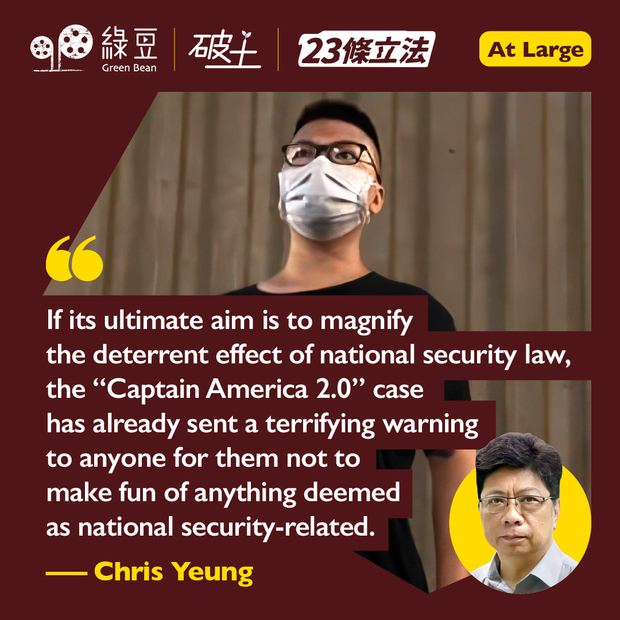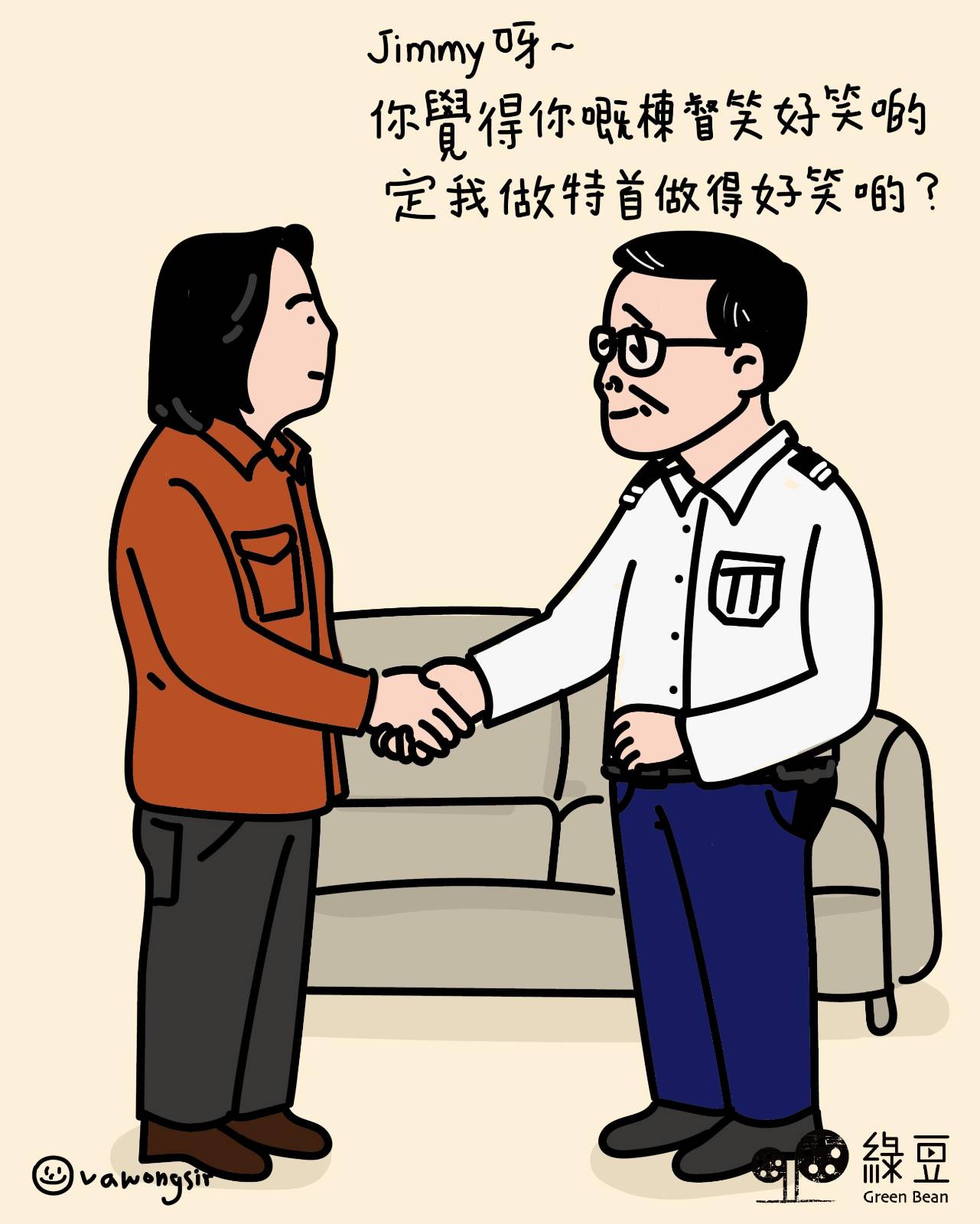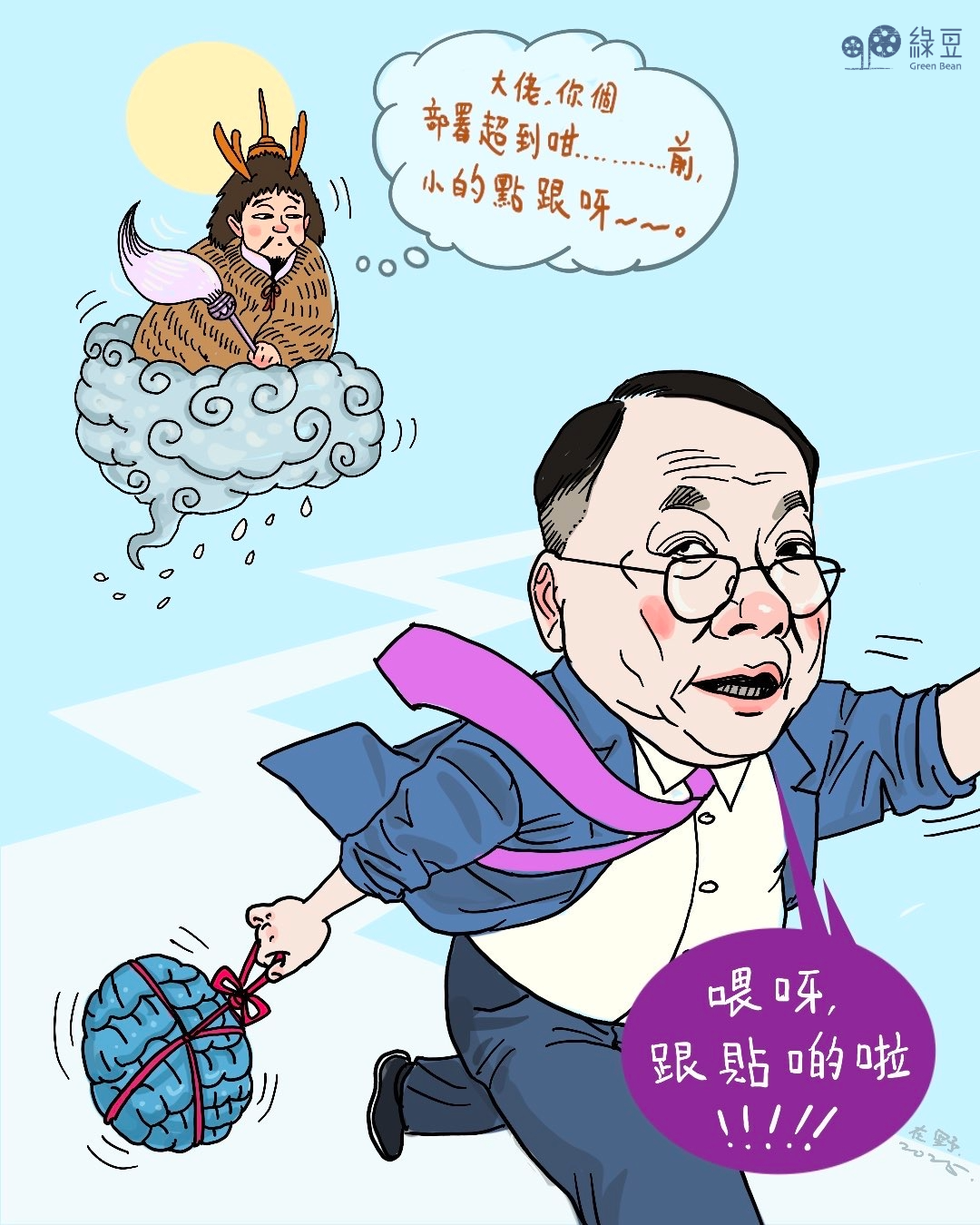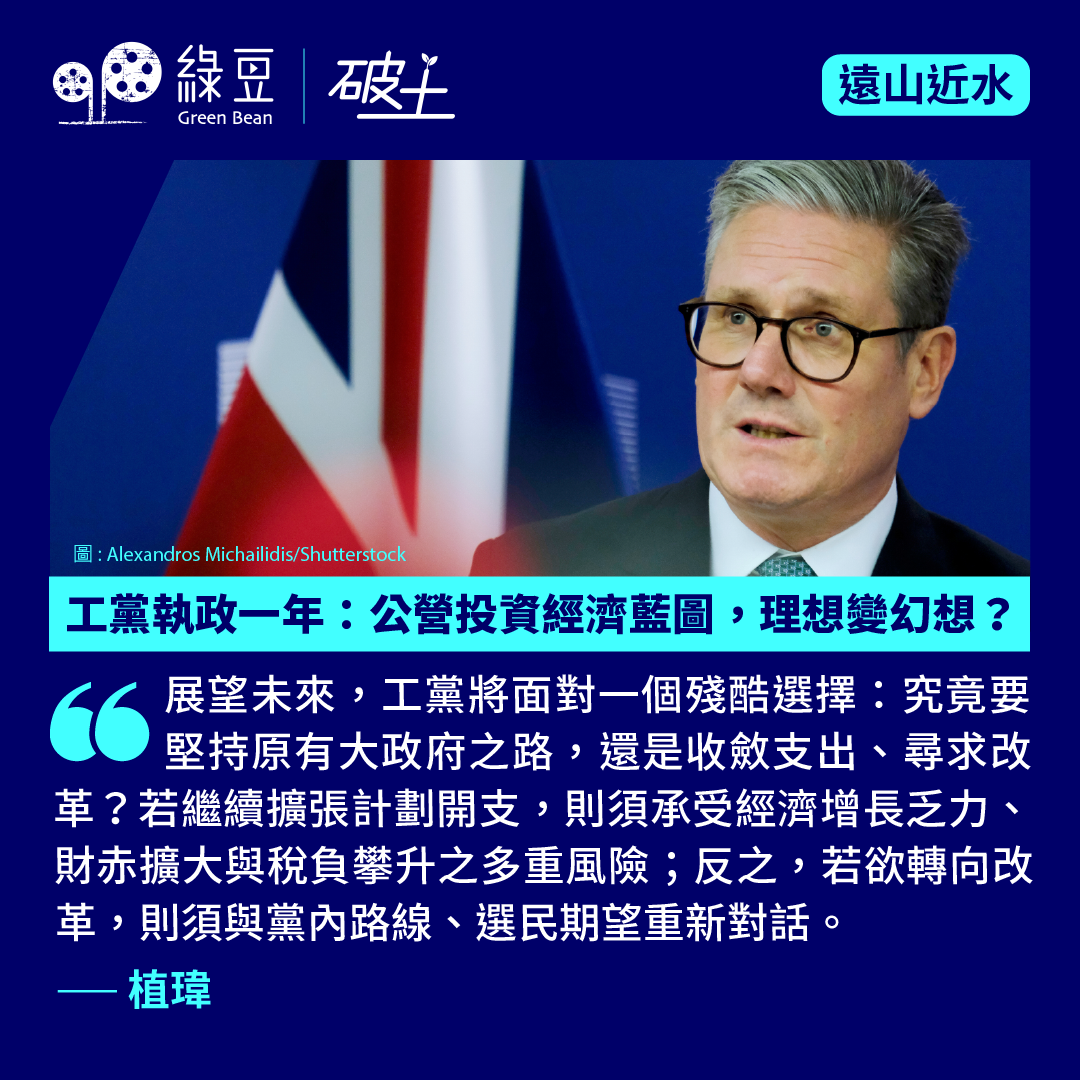‘Captain America’ the first blood of Article 23

Ma Chun-man, better known as “Captain America 2.0”, was the second person being convicted under the Hong Kong national security law after it took effect in July 2020. And he became the first to have succeeded in appealing against the original 69-month-long imprisonment. It was shortened to five years.
He was found guilty of chanting slogans and making speeches that called for Hong Kong’s independence on at least 20 occasions in person, as well as others on social media, between August and November 2020.
Carrying a superhero shield, Ma was a maverick protester during the 2019 protest, raising some eyebrows in the crowd. No more. No less. Little was known about his background. The media did not seem to be overly keen to know, including his original release.
It was not until the implementation of the new national security law beginning on March 23 that “Captain America 2.0” was back in the headlines.
Not granted early release
Some local media outlets reported on March 25 Ma was expected to be released that day, following a remission of his sentence based on the Prison Rules. Under the rules, any prisoners with good conduct in jail – unless serving a life sentence – may have enjoyed a one-third reduction of their sentence.
But following the enactment of the new national security law on March 23, the threshold for national security prisoners to apply for early release has been raised. A national security prisoner may not be granted early release unless the Correctional Services Department (CSD) commissioner is satisfied that remission “will not be contrary to the interests of national security.”
Ma was not able to walk free on March 25 as his friends were originally told, according to unconfirmed media reports.
He remained behind bars as the CSD chief was apparently unsatisfied that Ma’s early release would not endanger national security.
First target
The maverick protester has emerged as the first target of the new law, which is aimed to fill up the gaps of a robust legal mechanism on national security.
Arguably, he seems to be the least likely target in view of his background, or the lack of any political affiliations, the severity of his case and, importantly, his “good conduct” during imprisonment.
As of April 4, that is the only case under the new law.
Whether Ma would have walked free from the prison on March 25 as originally planned if the Article 23 legislation were not gazetted on March 23 is no longer a meaningful question.
The truth is Ma’s early release had been nullified after the new national security law gave powers to the CSD head to keep Ma for a longer period of time on the ground of national security consideration.
When asked about the imprisonment of Ma on March 26, Chief Executive John Lee said: “The public should understand that once one is convicted of national security crime, they will not be granted remission of sentence under normal circumstances. No remission of sentences will be a general practice…” Lee said in Cantonese, “It is the message that we want to deliver: never try to endanger national security as there will be no remission of sentence.” The CSD did not comment on individual cases.
Missions of CSD
Ma’s story swiftly vanished from the media limelight although important questions were left unanswered.
First, one of the missions of correctional services is to facilitate rehabilitation. Based on professional and fair assessment on the conduct of prisoners, the correctional services chief exercises powers to reduce sentences to help prisoners return to normal life. On what grounds does the mission not apply to national security prisoners?
Secondly, the law gives decisive power to the correctional services head not to reduce imprisonment on the ground of him or her not being satisfied that remission “will not be contrary to the interests of national security.” It has effectively given him or her power not to give early release out of concern that the prisoner may pose a threat to national security upon his or her release.
Another mission of the department reads it respects the dignity of all people with emphasis on “fairness and empathy.” The mechanism could be made fairer if the decision of “no remission” could be challenged by the relevant prisoner in court or other appellate body.
The lack of justifications for “no clemency” and lack of an appeal channel for national security prisoners makes a mockery of the values of fairness, empathy and rehabilitation that the department holds highly.
But if its ultimate aim is to magnify the deterrent effect of national security law, the “Captain America 2.0” case has already sent a terrifying warning to anyone for them not to make fun of anything deemed as national security-related.
▌[At Large] About the Author
Chris Yeung is a veteran journalist, a founder and chief writer of the now-disbanded CitizenNews; he now runs a daily news commentary channel on Youtube. He had formerly worked with the South China Morning Post and the Hong Kong Economic Journal.





